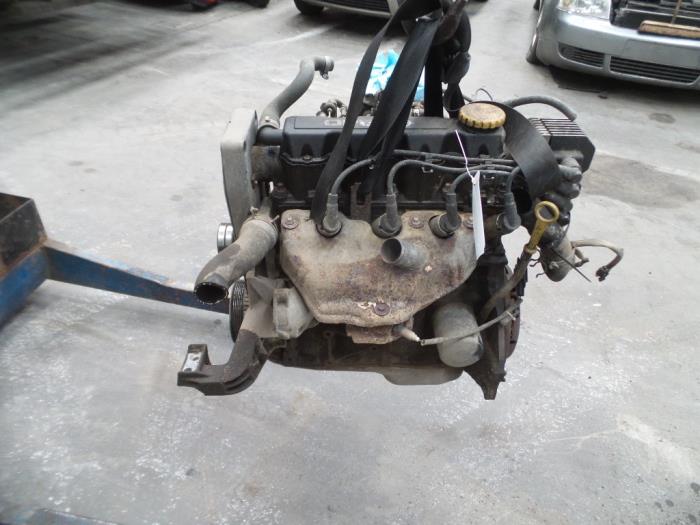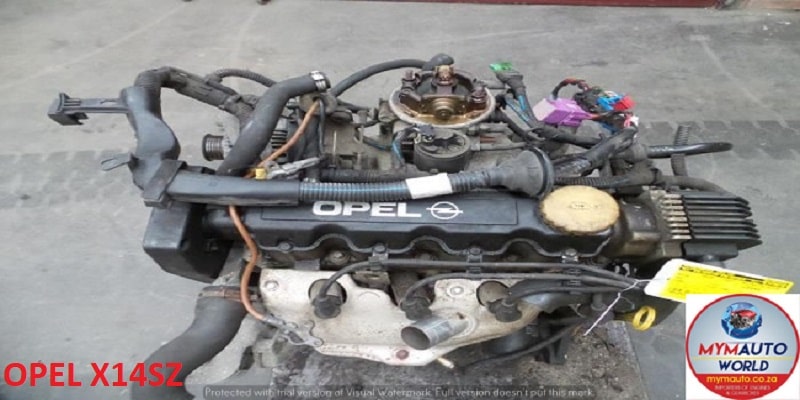Opel Corsa 1.4 Engine Price Breakdown: Discover Quality Vehicle Parts Selections
Opel Corsa 1.4 Engine Price Breakdown: Discover Quality Vehicle Parts Selections
Blog Article
Engine Purchasing Specialist Tips on Choosing the Right Engine for Your Particular Demands
Choosing the right engine for your certain needs includes an intricate interplay of elements that go past plain horsepower numbers. By delving right into the complexities of power versus effectiveness, assessing fuel scores, and budgeting for long-lasting prices, one can absolutely enhance their engine option.
Power Vs. Efficiency: Locating the Equilibrium
When choosing an engine, it is vital to strike a balance between power and effectiveness to fulfill your specific demands successfully. Power refers to the engine's ability to produce power for propulsion, establishing factors like velocity, lugging capacity, and total efficiency - Opel Corsa 1.4 Engine Price. On the various other hand, efficiency connects to exactly how well the engine makes use of fuel to create power, impacting factors such as fuel economic situation and environmental friendliness
Accomplishing the appropriate balance in between power and effectiveness is crucial since an engine that is as well effective may eat too much fuel, leading to greater operating expense and unnecessary pressure on the atmosphere. Conversely, an engine that prioritizes effectiveness over power might cause slow-moving efficiency, especially in demanding circumstances like lugging hefty lots or driving uphill.
To make an informed decision, consider elements such as your normal driving conditions, the desired use the automobile, and your personal preferences. By examining your needs and priorities, you can choose an engine that strikes the best equilibrium in between power and effectiveness, guaranteeing optimum efficiency while lessening ecological influence and operating expense.
Recognizing Engine Size and Type
To better refine the choice process of an engine that strikes the optimal equilibrium between power and efficiency, it is vital to dive into the details of understanding engine size and type. Engine dimension refers to the total volume of air and fuel that can be pressed through the engine cyndrical tubes. It is usually measured in liters or cubic centimeters. Larger engine sizes usually cause even more power output however can also result in lowered fuel efficiency. On the other hand, smaller sized engine sizes are frequently a lot more fuel-efficient however might sacrifice some power.
Usual engine types consist of inline engines, V engines, and rotating engines, each with its one-of-a-kind benefits and disadvantages. Understanding the interaction in between engine dimension and kind is essential in choosing an engine that straightens with your particular needs and priorities, whether it be power, performance, or an equilibrium of both.

Consider Your Lorry's Needs
Considering your vehicle's requirements is a basic action in the engine choice procedure to ensure optimal efficiency and functionality. It is necessary to assess factors such as the intended use of the vehicle, its weight, lugging ability, and gas efficiency needs. If you are looking for an engine for a sturdy vehicle that will certainly be made use of for towing, you will need an effective engine with high torque capabilities. On the other hand, if you are choosing an engine for a compact automobile mainly utilized for city commuting, gas effectiveness might be a more critical factor to think about.
If you often drive in hilly or hilly locations, a robust engine with great climbing up power will certainly be necessary. By lining up the engine requirements with your vehicle's needs, you can ensure that your lorry runs efficiently and satisfies your performance assumptions.
Assessing Gas Efficiency Scores
Evaluating fuel performance rankings is an important aspect of selecting the ideal engine for your automobile, making certain price financial savings and ecological sustainability. Gas efficiency rankings, typically gauged in miles per gallon (MPG) for gasoline engines or kilowatt-hours per 100 miles (kWh/100 miles) for electrical engines, indicate just how much a car can take a trip on a specific quantity of gas or electrical energy. Greater MPG or lower kWh/100 miles worths indicate extra reliable engines, converting to reduced fuel prices and reduced carbon discharges.
When evaluating fuel efficiency rankings, consider your driving routines and needs. A very fuel-efficient engine can result in considerable cost savings over time if you commute long ranges daily. Additionally, compare different engine options within the very same car class to identify the most economical selection. Aspects such as engine size, weight, aerodynamics, and crossbreed or electrical capabilities can all affect gas performance.
Budgeting for Long-Term Prices
Purposefully intending for long-term expenses is crucial when choosing an engine, making certain monetary sustainability over the car's life expectancy. While the first acquisition price of an engine is a substantial factor, it is essential to consider the lasting costs linked with upkeep, repairs, and fuel consumption.
Moreover, researching the accessibility and cost of substitute components for the selected engine my site is vital in spending plan preparation. Engines with easily available and budget-friendly components can considerably impact long-term upkeep costs. Furthermore, considering the engine's resilience and expected life expectancy can help avoid unexpected replacement prices in the future. By carefully budgeting for these long-term costs and factoring them right into the decision-making procedure, people can choose an engine that not just fulfills their immediate needs yet additionally continues to be affordable throughout its life expectancy.
Conclusion
In final thought, choosing the best engine for your particular needs calls for stabilizing power and performance, recognizing engine size and kind, considering your automobile's demands, examining gas effectiveness rankings, and budgeting for long-term costs. By thoroughly taking into consideration these factors, you can guarantee that you choose an engine that meets your requirements and gives optimal efficiency for your lorry.
To further fine-tune the selection process of an engine that strikes the ideal balance in between power and effectiveness, it is important to delve into the complexities of recognizing engine size and type. Engine size refers to the overall quantity of air and gas that can be pushed through the engine view it cylinders. Usual engine types include see this here inline engines, V engines, and rotating engines, each with its special advantages and drawbacks. Recognizing the interaction between engine dimension and kind is important in choosing an engine that straightens with your particular demands and priorities, whether it be power, performance, or an equilibrium of both.

Report this page